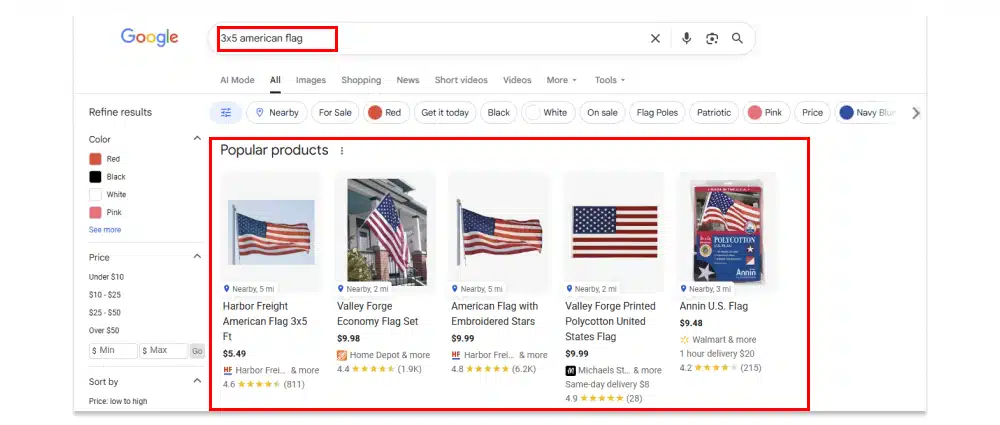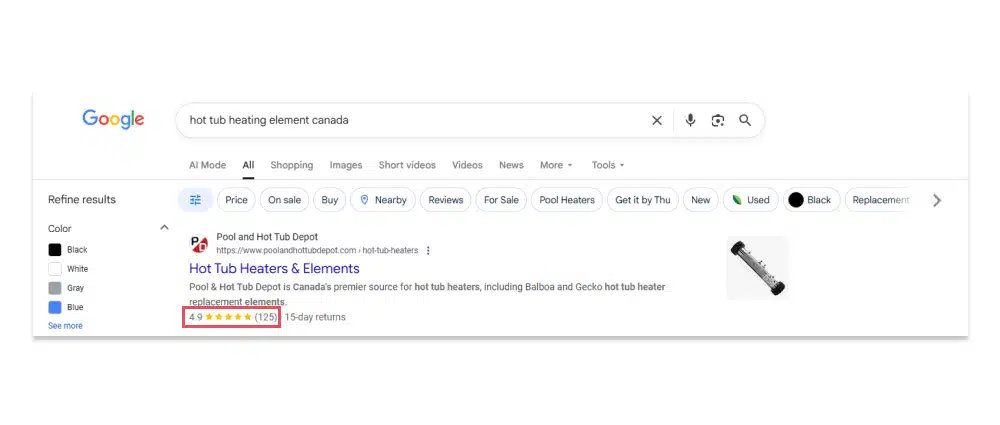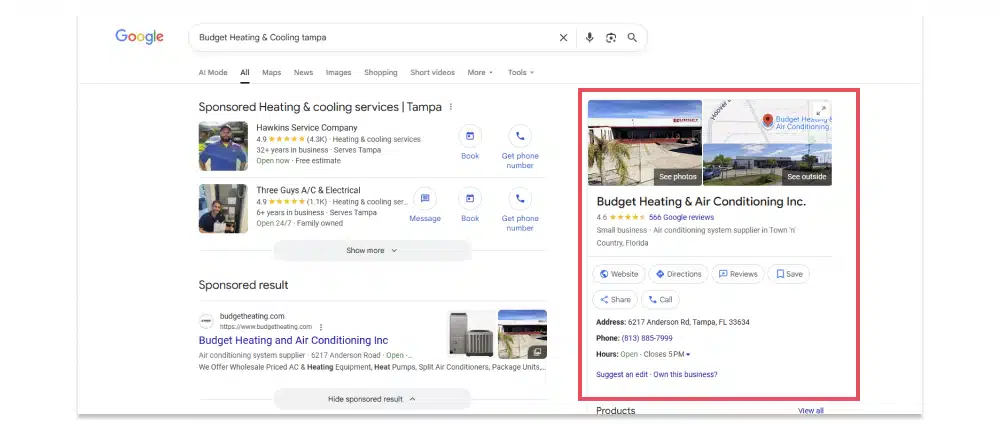If you’ve ever searched for a product and seen results with star ratings, prices, and quick answers right under the title, you’ve seen JSON-LD in action, even if you didn’t know it. It’s one of those behind-the-scenes tools that quietly helps search engines understand your website better.
Put simply, JSON-LD (which stands for JavaScript Object Notation for Linked Data) tells Google exactly what your page is about. It’s a way of labeling information, like your product names, prices, or business details, so search engines can show them in the most useful way. Think of it like giving Google a translator that speaks your website’s language fluently.
For small eCommerce stores, that matters more than ever. JSON-LD helps your products show up with extra details that catch attention: reviews, images, availability, all the little things that make someone more likely to click. While it might sound technical, modern platforms like BigCommerce and Shopify already make it easy to use without touching a single line of code. And when done right, JSON-LD can give your store an edge in search results without increasing your ad budget.
What Is JSON-LD? (And Why It Sounds More Complicated Than It Is)
JSON-LD might look intimidating at first glance, but it’s actually simple once you strip away the tech talk. It’s a small piece of code added to your website that helps Google and other search engines understand what’s on each page.
Think of it like adding labels to your store shelves. If you run an online shop, Google can’t “see” your products the way a human can. JSON-LD acts like those labels, clearly telling search engines, “This is a product,” “Here’s its price,” “This one’s in stock,” and “That one has five-star reviews.”
When your website includes this information, Google can use it to show enhanced results, like product listings with images, ratings, and pricing right on the search page. That’s what makes your store stand out and helps shoppers trust your brand before they even click. JSON-LD doesn’t change how your website looks to customers; it just makes it easier for search engines to read and display your content in the best possible way.
Why JSON-LD Matters for SEO
JSON-LD plays a big role in how your website shows up in Google search results. When it’s set up correctly, it helps search engines display rich results, things like star ratings, product prices, reviews, and even FAQs right under your listing. These extra details make your store stand out and give shoppers more reasons to click on your site instead of a competitor’s.
Rich results do more than just make your listings look nice, they also help build trust. When customers see real reviews, clear pricing, or product availability before clicking, they’re more confident in your store. This usually leads to higher click-through rates and better overall engagement.
The best part? JSON-LD is designed to work perfectly with Google’s structured data guidelines. That means adding it to your site doesn’t break anything or require major changes. Instead, it quietly supports your SEO by helping search engines understand your content and show it off in the best way possible.
Examples of JSON-LD in Action
When used correctly, JSON-LD can make your business stand out in search results in a few different ways. Here are some common examples small eCommerce stores can benefit from:
Product Listings with Price and Stock
 Example Product Listings with Price
Example Product Listings with Price
Ever notice how some search results show product prices, stock availability, and even special offers? That’s JSON-LD at work. It tells Google exactly what the product costs and whether it’s available, helping customers make quick decisions.
Review Snippets
 Example of Review Snippet with star rating and amount of reviews
Example of Review Snippet with star rating and amount of reviews
If your products have customer reviews, JSON-LD allows Google to display those star ratings right under your listing. Those stars catch attention fast and build instant trust with new shoppers.
Business Information in Google’s Knowledge Panel
 Budget Heating and Air Conditioning Business Info
Budget Heating and Air Conditioning Business Info
JSON-LD can also be used to feed Google accurate business information — things like your store name, address, hours, and contact details. This information can appear in the Knowledge Panel on the right-hand side of search results, making your brand look more professional and reliable.
All of these examples have one thing in common, they help customers find key details about your business faster while improving how search engines interpret and showcase your site.
Common Mistakes to Avoid
Even though JSON-LD is simpler than it looks, there are a few mistakes small businesses make that can cause problems down the line. The good news? They’re easy to avoid once you know what to watch for.
Copy-pasting bad code
Many store owners grab code snippets from the internet and paste them directly into their site without checking if they’re valid. Even one small typo or missing bracket can cause your structured data to break. Always use trusted sources like Schema.org or tools that generate verified JSON-LD for you. And remember, if you’re unsure, test it before publishing.
Not keeping product data updated
If your structured data says a product is “in stock” or priced at $39.99 but your actual page says otherwise, that inconsistency confuses search engines. Keep your product details, prices, and availability synced with your live listings. Platforms like BigCommerce and Shopify handle this automatically, but manual sites need regular checks.
Forgetting to test after changes
Every time you update your theme, product layout, or plugins, run your site through Google’s Rich Results Test again. Small adjustments can sometimes break the structured data without you realizing it. Testing takes seconds, fixing missed errors later can cost you valuable search visibility.
Keeping your JSON-LD clean, current, and tested is the easiest way to make sure your products and pages continue showing up properly in Google’s rich results.
Conclusion
JSON-LD isn’t just for big brands, it’s one of the simplest ways for small businesses to stand out in search results. When your products show prices, reviews, and availability right on Google, customers are more likely to click. That extra visibility can make all the difference for an online store competing with larger retailers.
Getting it right doesn’t have to be complicated. With the right setup, JSON-LD quietly does the heavy lifting in the background, helping search engines understand your site and showing customers exactly what they’re looking for.
It’s a small upgrade that can bring big results. Start optimizing today and help Google, and your customers, understand your store better.

 Eashan Mehta
Eashan Mehta





